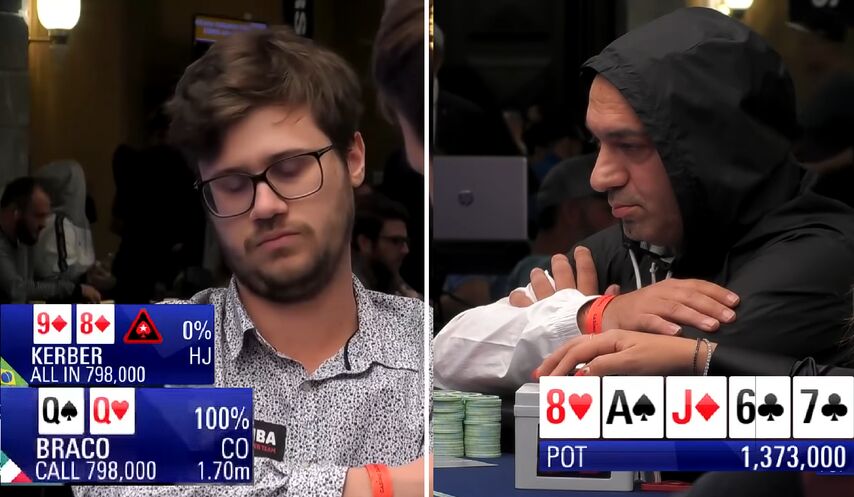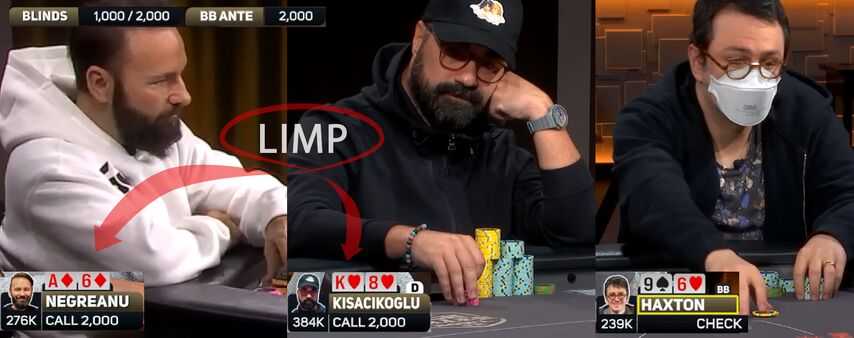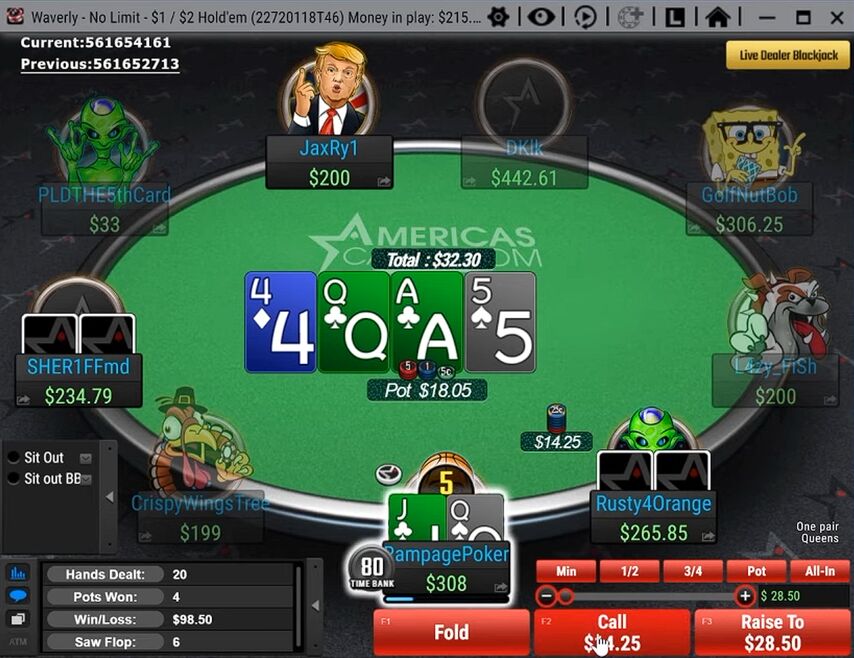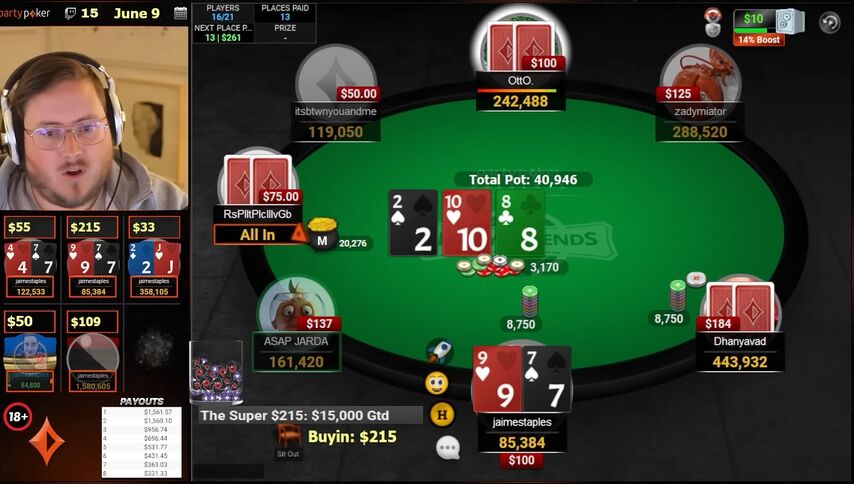What is a call in poker and why do most players have the wrong idea about it?
Calling a bet in poker is the same as matching or equaling a wager. If a player makes a bet, anyone who wants to continue in the hand must call the bet to continue. That being said, calling is not your only option when a bet is made. Players can also fold and stop playing until the next hand is dealt, or make a raise and increase the bet size.
New and inexperienced players call in poker games too often. We all have a desire to see what kind of hand combination we can make, but this can lose a lot of chips for beginners. That’s known as a loose poker strategy.
This guide will talk about how often and when you should be calling. After this short read, you’ll understand how to properly think about making a call in poker.

Example of a Call in Poker
Calling is one of the four actions that poker players can make.
Players can also:
- Raise and increase the size of the wager that other players must call
- Fold and withdraw from the hand
- Check and pass your turn to the next player (only after preflop action)
Let’s say you’re playing a game of Texas Holdem and you like the look of your hand. The big blind amount is $5, so you put $5 into the pot when it is your turn. Any time you match a wager, that’s a call in poker.
When you call, you will get to proceed to the next betting round, unless someone makes a raise. If one of the players after you decides to raise, you will need to decide again: call, raise, or fold.
Call vs. Limp in Poker: What’s The Difference?
You need to know the difference in meaning between a call and a limp in poker. During the preflop stage of a poker game, if you enter the pot by calling the big blind amount, that’s a limp.

So how is a limp different from a call?
A limp can only happen preflop, and only when a player calls the big blind amount. If someone raises, and you call, that is not a limp.
All limps are calls, but not all calls are limps.
When to Call in Poker
Sometimes you have a hand that is not strong enough to make a raise, but you want to continue in the hand. This can happen preflop and postflop.
Sometimes, making a raise could be risky, and calling is the most sensible option. If your hand isn’t strong enough to raise, but you think you might be ahead of your opponent, calling works well. Raising could inflate the pot and make it very pricey to get to a showdown.

In this cash game hand from RampaagePoker on ACR, calling seems to be the best choice with middle pair.
- When you have a very strong hand or the “nuts”, you should consider acting passive with a call when you face a bet. Your opponent might continue to bet, and a raise might cause them to fold. If they are putting chips into the pot and you are far ahead (in terms of equity), don’t influence them to stop.
- Your opponent raised, but you don’t want to 3-bet. Sometimes, calling a raise is better than making a 3-bet, since your opponent could 4-bet and put you in a tough position.
- If you have a flush draw or straight draw, you might want to consider a call. There are going to be times that you fold draws and times that you raise them, but most of the time, you’ll be calling. The same goes for pocket pairs, however, don’t forget the importance of position when pondering a call.

Something to think about:
Who is going to act after you? When you call, is there a chance that someone behind you will raise? This is exactly why limping is problematic; it’s very likely that you will face a raise. It’s important to think a few steps ahead and make a plan when you call, both preflop and postflop.
Beginners Call Too Often in Poker
Sometimes you’ll need to call, but of course, not 100% of the time.
Beginners want to see as many flops as they can, but they call too often. Experienced players are always on the lookout for these loose players.
New players don’t understand just how selective they need to be with preflop hands and see some potential in many different card combinations. Sometimes, they are more focused on their own hand’s potential, meaning they don’t think about their opponents’ hands.
Each time you call, a little portion of your chip stack is gone. That’s not a problem, as long as you are playing competitively and proceeding with a decent hand. If you’re playing too many hands and continuing with weak hands – then it’s a problem.
Profit-boosting tip: You can use a HUD (heads-up display) to identify players who call too often online. By checking a player’s VPIP stat, you’ll see exactly how many hands they are playing.
Take advantage of the soft fields at some of the largest poker sites, which we’ve reviewed for you.
Why is Calling Too Often a Bad Thing?
When you call too often, your opponents will know that your range is weaker. In poker, a range is all of the hands we have, at a specific time. So when your calling range is too wide, this is what you are saying to your opponents:
“Hi everyone. I’m not very selective about the hands I play, so I usually have hands that are low or mid-strength.”
Of course, premium hands will still come your way – but here’s the big difference. By calling too much preflop, loose players will have those hands far less than their opponents. This is a classic advantage that experienced players use to win pots against loose poker players.























